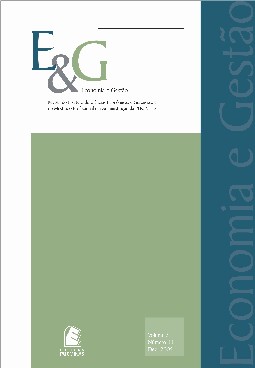Intercultural or Crosscultural Management? The confirmation of a research field and the issue concerning the definition and development of an intercultural competency for expatriates and international managers
Resumo
Companies have recently gone through several radical modifications due to the speed of environmental changes leading to the confirmation of a “new paradigm of businessâ€?, as pointed out by W. Hesterley and C. Brooklyn Derr. An abundance of terms has emerged in recent years to describe this new paradigm: hybrid organizations (POWELL, 1987), network organizations (MILES; SNOW 1986; 1992), horizontal corporations (BYRNE, 1993b), virtual corporations (BYRNE 1993a; DAVIDOW; MALONE, 1992), internal markets (HALAL, 1994), strategic alliance (KANTER, 1989), downsizing (TOMSAKO, 1991) are a representative list of the trends taking place. As a direct consequence of those organizational and strategic trends, personnel management has gone through deep changes. In addition to the great challenge of forecasting which positions should remain and which should be eliminated, the International Human Resource Management - IHRM now faces a situation where expatriates are fewer, and should be better prepared and carefully chosen from a pre-defined list of valuable individuals the organizations are even more strongly attached to. This reality certainly results from the fact that companies’ frontiers are becoming less strict and less determined, the world is becoming more dangerous, and local recruitment practices tend to become more popular and be considered a safer bid. Those selected “key menâ€? must not only have certain technical and linguistic abilities to work anywhere in the world, but also be able to convey and manage strategic values and purposes, as well as be clever enough to seize opportunities and resources offered by local environments and decide what must be adapted, taken into consideration or standardized. The organization’s coherence in the strategic choice of decentralization and in the choice between market and hierarchy is intimately related to specific human competencies. We assume here that the holder of a sort of “intercultural competencyâ€? would be someone able mainly to “effectively communicate with people who are from different national, organizational, functional or professional cultures than his ownâ€?. Intercultural communication studies confirm that, in order to communicate, two groups of different cultures must interact so as to develop a common pool of values, a re-negotiation of their own identities. The intercultural competency owner’s mission consists of making sure his/her organization’s values and purposes are properly conveyed through the creation of a shared basis of meanings, and through the achievement of a shared vision implementation (SENGE, 1991).Downloads
Não há dados estatísticos.
Downloads
Publicado
2008-09-23
Como Citar
Guitel, V. D. (2008). Intercultural or Crosscultural Management? The confirmation of a research field and the issue concerning the definition and development of an intercultural competency for expatriates and international managers. Revista Economia & Gestão, 6(12). Recuperado de https://periodicos.pucminas.br/economiaegestao/article/view/35
Edição
Seção
Artigos


